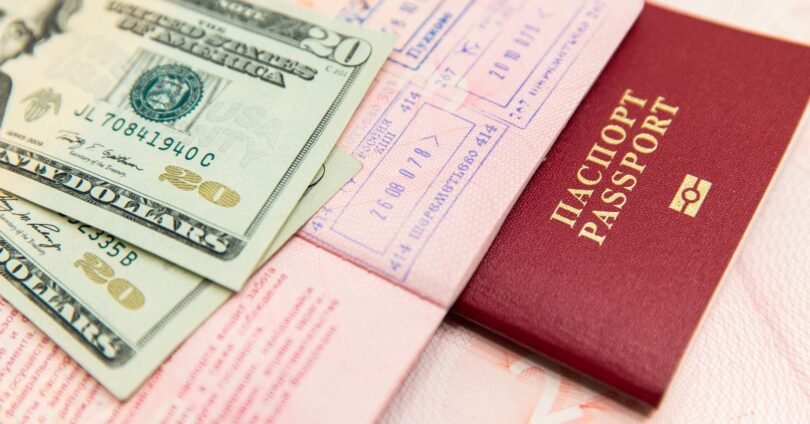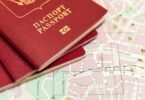Germany Visa for Immigrants – Visa Sponsorship in Germany
Germany, known for its robust economy, high quality of life, and cultural diversity, is a top destination for immigrants seeking new opportunities. With a strong demand for skilled workers across various sectors, Germany offers several visa pathways, including those with sponsorship options, to attract international talent.
This comprehensive guide explores the various visa types available for immigrants, focusing on visa sponsorship opportunities in Germany. From job seeker visas to work permits and family reunification options, this article provides detailed insights into eligibility, application processes, requirements, and strategies for securing a visa. Whether you’re a skilled professional, student, or family member, this guide will help you navigate the German immigration system to achieve your goals.
Why Germany is a Top Destination for Immigrants
Germany’s appeal as an immigration destination lies in its economic stability, advanced infrastructure, and welcoming policies for skilled workers. As Europe’s largest economy, Germany faces a shortage of professionals in fields like engineering, healthcare, IT, and manufacturing, creating opportunities for immigrants. According to the Federal Employment Agency, Germany had over 1.7 million job vacancies in 2024, many of which are open to international candidates through visa sponsorship programs. The country’s aging population and low birth rate further drive the need for foreign workers, making visa sponsorship a critical tool for employers.
Beyond economic opportunities, Germany offers a high standard of living, excellent healthcare, and free education in public schools and universities. Cities like Berlin, Munich, and Hamburg are global hubs for innovation, culture, and diversity, attracting immigrants from around the world. Additionally, Germany’s immigration policies are relatively flexible compared to other developed nations, with clear pathways to permanent residency and citizenship for those who meet the requirements.
Understanding Visa Sponsorship in Germany
Visa sponsorship in Germany refers to the process where an employer, educational institution, or family member supports an immigrant’s visa application by providing necessary documentation, such as a job offer, admission letter, or proof of relationship. Sponsorship is often required for work visas, student visas, and family reunification visas, as it demonstrates to the German government that the immigrant has a legitimate purpose for entering the country and will contribute to society.
Sponsorship is particularly common in the employment sector, where employers prove a shortage of local workers to justify hiring international candidates. For students, universities or vocational schools may sponsor visas by issuing admission letters. Family members already residing in Germany can sponsor relatives for reunification purposes. This guide will focus on the main visa types that involve sponsorship, their eligibility criteria, and how immigrants can secure them.
Types of German Visas with Sponsorship Opportunities
1. Job Seeker Visa
The Germany Job Seeker Visa allows skilled professionals to enter the country for up to six months to search for employment. While it does not require a job offer upfront, securing a job during this period often leads to a sponsored work visa.
Eligibility:
- A recognized bachelor’s degree or equivalent qualification (must be verified by the Anabin database).
- At least five years of professional experience in your field.
- Proof of sufficient funds (approximately €5,600 for six months, or €947 per month).
- Health insurance valid in Germany.
- Proficiency in German or English, depending on the job market (B1 German recommended for most roles).
Application Process:
- Gather documents: passport, degree certificates, proof of funds, health insurance, and a motivation letter outlining your job search plan.
- Apply at the German embassy or consulate in your home country. Processing takes 4-6 weeks, with a fee of €75.
- Upon arrival in Germany, register your address at the local registration office (Einwohnermeldeamt).
- Actively search for jobs through platforms like StepStone, Indeed, or the Federal Employment Agency’s job portal.
- Once a job offer is secured, apply for a work visa (e.g., EU Blue Card or Skilled Worker Visa) with employer sponsorship.
Sponsorship Opportunity:
Once you secure a job offer, the employer provides a contract and supporting documents to sponsor your transition to a work visa. Large companies like Siemens, BMW, and SAP frequently sponsor international hires.
Benefits:
- Allows exploration of the German job market without a prior job offer.
- Access to high-demand sectors like IT, engineering, and healthcare.
- Pathway to long-term work visas and permanent residency.
Challenges:
- No employment is allowed during the job search period.
- Limited to six months, with no extension possible.
- Competitive job market requires proactive networking and applications.
2. EU Blue Card
The EU Blue Card is a work permit for highly skilled non-EU nationals, designed to attract professionals to Germany’s high-demand industries. It requires a job offer with a minimum salary threshold.
Eligibility:
- A university degree recognized in Germany (check Anabin database).
- A binding job offer or contract with an annual gross salary of at least €58,400 (2025 threshold) or €45,300 for shortage occupations (e.g., doctors, engineers, IT specialists).
- Relevant professional experience in the field.
- Health insurance and a valid passport.
Application Process:
- Secure a job offer meeting the salary threshold. Employers must provide a signed contract and job description.
- Submit an application to the German embassy or local Foreigners’ Authority (Ausländerbehörde) if already in Germany. Required documents include the job contract, degree certificates, passport, and proof of health insurance.
- Pay the application fee (€75-€100). Processing takes 2-4 weeks.
- Upon approval, receive a residence permit valid for up to four years, tied to the employment contract.
Sponsorship Opportunity:
The employer sponsors the visa by providing a job offer that meets the salary and qualification requirements. Companies in tech (e.g., SAP, Deutsche Telekom), engineering (e.g., Volkswagen), and healthcare frequently sponsor EU Blue Cards.
Salary Expectations:
EU Blue Card holders typically earn €58,400-€100,000 annually, depending on the industry and experience. Shortage occupations may have lower salary requirements but offer competitive pay.
Benefits:
- Fast track to permanent residency (after 33 months, or 21 months with B1 German).
- Family reunification rights for spouses and children.
- Flexibility to change employers after two years without reapplying for a visa.
Challenges:
- High salary threshold may exclude some professions.
- Degree recognition can be complex for non-EU qualifications.
- Limited to skilled roles, requiring specialized experience.
3. Skilled Worker Visa (Residence Permit for Qualified Employment)
The Skilled Worker Visa targets professionals with vocational training or academic qualifications in recognized occupations. Introduced under the Skilled Immigration Act of 2020, it’s a popular option for tradespeople and technical workers.
Eligibility:
- A recognized qualification (vocational training or university degree) verified by the Anabin or ZAB database.
- A binding job offer from a German employer.
- For non-regulated professions (e.g., IT, mechanics), proof of qualification suffices. Regulated professions (e.g., nursing, teaching) require professional licensing.
- Basic German proficiency (A2-B1) for most roles, though exceptions apply for IT and English-speaking roles.
- Health insurance and sufficient funds for initial living expenses.
Application Process:
- Secure a job offer from a German employer willing to sponsor the visa.
- Apply at the German embassy or Foreigners’ Authority with documents: job contract, qualification certificates, passport, health insurance, and proof of funds.
- Pay the application fee (€75). Processing takes 4-8 weeks.
- Upon approval, receive a residence permit valid for the duration of the contract (up to four years).
Sponsorship Opportunity:
Employers in industries like manufacturing (e.g., Bosch), construction, and healthcare (e.g., Charité Hospital) sponsor this visa by providing a job contract and, if necessary, supporting qualification recognition.
Salary Expectations:
Salaries range from €35,000 to €70,000 annually, depending on the role and experience. Skilled trades like electricians or nurses often start at €40,000, with potential for growth.
Benefits:
- Broad eligibility for both academic and vocational qualifications.
- Pathway to permanent residency after two years (with B1 German).
- Family reunification rights.
Challenges:
- Qualification recognition can be time-consuming and costly (€200-€600 for ZAB evaluation).
- German language requirements may pose a barrier for some applicants.
- Employers must prove a shortage of local workers for certain roles.
4. Student Visa with Sponsorship for Studies
Germany is a global leader in education, offering affordable or free tuition at public universities. International students can obtain a student visa, often sponsored by a university or vocational school.
Eligibility:
- Admission letter from a recognized German university or vocational institution.
- Proof of sufficient funds (€11,904 per year, or €992 per month, typically via a blocked account).
- Health insurance valid in Germany.
- Basic German or English proficiency, depending on the program (B2 German or IELTS/TOEFL for English programs).
- Valid passport and high school/previous academic certificates.
Application Process:
- Apply to a German university or vocational school and secure an admission letter.
- Open a blocked account to prove financial resources (e.g., via Fintiba or Deutsche Bank).
- Submit a visa application at the German embassy with documents: admission letter, proof of funds, health insurance, passport, and language certificates.
- Pay the visa fee (€75). Processing takes 6-12 weeks.
- Upon approval, receive a residence permit for the duration of the study program (up to two years, renewable).
Sponsorship Opportunity:
The educational institution sponsors the visa by issuing an admission letter. Top universities like LMU Munich, TU Berlin, and vocational schools in fields like automotive technology often support international students.
Benefits:
- Access to world-class education at low or no cost.
- Permission to work part-time (120 full days or 240 half days per year).
- Post-study work visa (18 months) to seek employment, often leading to a sponsored work visa.
Challenges:
- Competitive admission to top universities.
- Financial proof requirements can be a barrier.
- Language proficiency is mandatory for German-taught programs.
5. Family Reunification Visa
The Family Reunification Visa allows spouses, minor children, and other close relatives of German residents or citizens to join them in Germany. Sponsorship is provided by the family member residing in Germany.
Eligibility:
- The sponsor must be a German citizen, EU citizen, or non-EU resident with a valid residence permit (e.g., EU Blue Card or Skilled Worker Visa).
- The sponsor must have sufficient income (approximately €1,500-€2,000 net per month for a family of three) and adequate housing.
- Spouses must provide a marriage certificate; children require birth certificates showing parentage.
- Basic German proficiency (A1) for spouses, with exceptions for highly skilled sponsors’ families.
Application Process:
- The sponsor in Germany provides documents: residence permit, proof of income, housing contract, and relationship certificates.
- The applicant applies at the German embassy with documents: passport, marriage/birth certificates, A1 German certificate (if required), and health insurance.
- Pay the visa fee (€75 for adults, €37.50 for children). Processing takes 8-12 weeks.
- Upon approval, receive a residence permit tied to the sponsor’s status.
Sponsorship Opportunity:
The family member in Germany sponsors the visa by proving financial stability and housing. This visa is common for spouses and children of skilled workers or students.
Benefits:
- Allows families to stay together in Germany.
- Spouses can work without restrictions after arrival.
- Pathway to permanent residency if the sponsor is a permanent resident.
Challenges:
- Strict financial and housing requirements for sponsors.
- A1 German requirement can be a hurdle for spouses.
- Processing times can be lengthy, especially in high-demand embassies.
6. Au Pair Visa
The Au Pair Visa allows young people (aged 18-26) to live with a German host family, learn the language, and experience the culture while providing childcare and light household help.
Eligibility:
- Age 18-26 (upper limit varies by nationality).
- Basic German proficiency (A1).
- Contract with a host family registered with a German au pair agency.
- Proof of sufficient funds and health insurance.
- No prior au pair visa in Germany.
Application Process:
- Find a host family through agencies like AuPairWorld or Aupair.com.
- Sign an au pair contract outlining duties, pocket money (€280/month minimum), and accommodation.
- Apply at the German embassy with documents: contract, passport, A1 German certificate, health insurance, and proof of funds.
- Pay the visa fee (€75). Processing takes 4-8 weeks.
- Receive a one-year residence permit, non-renewable as an au pair.
Sponsorship Opportunity:
The host family sponsors the visa by providing a contract and accommodation. Agencies facilitate matching and ensure compliance with German regulations.
Benefits:
- Opportunity to learn German and integrate into society.
- Monthly pocket money, free accommodation, and meals.
- Potential to transition to a student or work visa after the program.
Challenges:
- Limited to one year with no extension as an au pair.
- Language and cultural adaptation can be challenging.
- Dependent on the host family’s suitability.
Key Industries Offering Visa Sponsorship
Germany’s labor market has a high demand for skilled workers in specific sectors, many of which offer visa sponsorship to attract international talent. Here are the top industries:
1. Information Technology (IT)
- Roles: Software developers, data scientists, cybersecurity experts.
- Companies: SAP, Deutsche Telekom, Zalando.
- Sponsorship: EU Blue Card and Skilled Worker Visa are common, with many English-speaking roles.
- Salary Range: €50,000-€100,000 annually.
- Demand: Over 120,000 IT vacancies in 2024, per Bitkom.
2. Healthcare
- Roles: Doctors, nurses, medical technicians.
- Companies: Charité, Helios Kliniken, public hospitals.
- Sponsorship: Skilled Worker Visa, often with support for qualification recognition.
- Salary Range: €40,000-€80,000 for nurses; €70,000+ for doctors.
- Demand: 200,000+ healthcare worker shortages projected by 2030.
3. Engineering
- Roles: Mechanical, electrical, automotive engineers.
- Companies: Siemens, Bosch, Volkswagen.
- Sponsorship: EU Blue Card and Skilled Worker Visa.
- Salary Range: €50,000-€90,000 annually.
- Demand: High need for engineers in automotive and renewable energy sectors.
4. Manufacturing and Skilled Trades
- Roles: Electricians, welders, CNC machinists.
- Companies: Thyssenkrupp, BASF, local Mittelstand firms.
- Sponsorship: Skilled Worker Visa for vocational qualifications.
- Salary Range: €35,000-€60,000 annually.
- Demand: Over 300,000 vacancies in skilled trades in 2024.
5. Education and Research
- Roles: Researchers, professors, vocational trainers.
- Companies: Max Planck Institutes, universities, Fraunhofer Society.
- Sponsorship: EU Blue Card, Skilled Worker Visa, or student visa for PhD candidates.
- Salary Range: €40,000-€80,000 annually.
- Demand: Growing need for academic and vocational instructors.
Visa Application Process: Step-by-Step Guide
- Research Visa Type: Identify the appropriate visa (e.g., Job Seeker, EU Blue Card, Family Reunification) based on your goals and eligibility.
- Secure Sponsorship: Obtain a job offer, university admission, or family sponsorship documents. Employers or institutions provide contracts or letters to support your application.
- Gather Documents: Common requirements include:
- Valid passport.
- Qualification certificates (verified by Anabin or ZAB).
- Proof of funds (blocked account or sponsor’s income proof).
- Health insurance valid in Germany.
- Language certificates (A1-B1 German or IELTS/TOEFL for English programs).
- Job contract or admission letter.
- Recent passport photos and application forms.
- Apply at the German Embassy: Submit your application at the nearest German embassy or consulate. Schedule an appointment in advance, as wait times can be long.
- Pay Fees: Visa fees are typically €75 for adults, €37.50 for children (Family Reunification), or €100 for certain work visas. Some embassies accept only cash or specific payment methods.
- Attend an Interview: Some visa types require an interview to verify your intentions and documents. Be prepared to explain your plans and provide additional details.
- Wait for Processing: Processing times range from 2-12 weeks, depending on the visa type and embassy workload. Track your application status online if available.
- Arrive in Germany: Upon approval, receive a visa sticker in your passport. After arrival, register your address within 14 days and apply for a residence permit at the Foreigners’ Authority.
Challenges of Securing a Sponsored Visa
- Qualification Recognition: Non-EU qualifications must be verified by Anabin or ZAB, which can take 2-3 months and cost €200-€600.
- Language Requirements: Many visas require basic German (A1-B1), which can be a barrier for non-German speakers.
- Employer Sponsorship: Not all employers are willing to sponsor visas due to administrative costs and labor market tests.
- Visa Caps and Delays: Some visa types, like the Job Seeker Visa, have strict time limits, and processing delays can disrupt plans.
- Financial Proof: Blocked accounts or sponsor income requirements can be challenging for applicants with limited resources.
Strategies to Secure Visa Sponsorship
1. Target High-Demand Industries
Focus on sectors with labor shortages, such as IT, healthcare, and engineering. Companies in these fields are more likely to sponsor visas due to the difficulty in finding local talent.
2. Use Job Portals
Leverage platforms like:
- StepStone: Lists thousands of jobs, many with visa sponsorship.
- Make it in Germany: Government portal for international professionals, with visa information.
- Indeed Germany: Filters for visa-sponsored roles.
- LinkedIn: Connect with recruiters and companies open to international hires.
3. Work with Recruitment Agencies
Agencies like Randstad Germany and ManpowerGroup specialize in placing international candidates in sponsored roles. They assist with job matching, visa applications, and qualification recognition.
4. Network and Attend Job Fairs
Join LinkedIn groups like “Jobs in Germany for Internationals” or attend virtual job fairs organized by the Federal Employment Agency. Networking with industry professionals can lead to sponsorship opportunities.
5. Learn Basic German
Even for English-speaking roles, A1-B1 German proficiency improves your chances. Enroll in courses via Goethe-Institut or online platforms like Duolingo before applying.
6. Prepare a Strong Application
- CV and Cover Letter: Use a German-style CV (1-2 pages, professional photo) and tailor your cover letter to each job, highlighting your eligibility for sponsorship.
- Document Translation: Ensure all certificates and records are translated into German or English by a certified translator.
- Verification: Start the qualification recognition process early via the ZAB portal to avoid delays.
7. Apply Early
Submit visa applications 3-6 months before your intended move to account for processing times. For job seeker visas, apply in the first quarter of the year to maximize job search time.
Salary and Benefits for Sponsored Workers
Salaries for visa-sponsored workers vary by industry and role:
- IT Professionals: €50,000-€100,000 annually, with bonuses and stock options at tech firms.
- Healthcare Workers: €40,000-€80,000 for nurses; €70,000+ for doctors.
- Engineers: €50,000-€90,000, with overtime pay in manufacturing.
- Skilled Trades: €35,000-€60,000, with opportunities for raises after licensing.
- Au Pairs: €280/month pocket money, plus free accommodation and meals.
Benefits often include:
- Health insurance (mandatory, often employer-subsidized).
- Pension contributions.
- Paid vacation (20-30 days annually).
- Relocation assistance (some employers cover travel or housing costs).
- Language training support.
Top Cities for Immigrants in Germany
- Berlin: Tech hub with opportunities in IT and startups. Diverse and English-friendly.
- Munich: Home to BMW, Siemens, and Allianz. High salaries but expensive housing.
- Hamburg: Logistics and media industries, with a vibrant international community.
- Frankfurt: Financial center with jobs in banking and consulting.
- Stuttgart: Automotive and engineering hub, ideal for skilled trades and engineers.
Pathways to Permanent Residency and Citizenship
- Permanent Residency (Niederlassungserlaubnis):
- EU Blue Card holders: Eligible after 33 months (21 months with B1 German).
- Skilled Worker Visa holders: Eligible after 2-4 years, depending on qualifications and German proficiency.
- Requirements: Stable income, B1 German, health insurance, and no criminal record.
- Citizenship:
- Eligible after 8 years of legal residence (7 years with integration course, 3-5 years for spouses of German citizens).
- Requirements: C1 German, financial stability, renunciation of previous citizenship (with exceptions), and passing a citizenship test.
Future Outlook for Immigrants in Germany
Germany’s immigration policies are expected to become more flexible, with the government aiming to attract 400,000 skilled workers annually to address labor shortages. The Opportunity Card (Chancenkarte), introduced in 2024, simplifies entry for job seekers by using a points-based system, further expanding sponsorship opportunities. Salaries are projected to rise in high-demand sectors, with IT and healthcare professionals potentially earning 10-20% more by 2030. The country’s commitment to integration, including free language courses and vocational training, makes it an increasingly attractive destination for immigrants.
Conclusion
Germany offers a wealth of opportunities for immigrants through visa sponsorship programs, catering to skilled professionals, students, families, and young au pairs. By understanding the visa types, targeting high-demand industries, and preparing a strong application, you can successfully navigate the German immigration system. Whether you’re seeking a high-paying tech job, a stable healthcare career, or the chance to study at a top university, Germany’s visa sponsorship options provide a clear path to achieving your dreams. Start your journey today by researching job opportunities, connecting with employers, and gathering the necessary documents to make Germany your new home.
For more information, visit official resources like the Make it in Germany portal (www.make-it-in-germany.com) or contact the nearest German embassy. Your future in Germany awaits!







